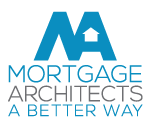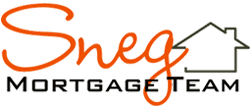What is Bridge Financing?
Bridge loans are temporary loans that bridge the gap between the sales price of a new home and a home buyer’s new mortgage. This may happen in the event that the client’s home has a firm sale where the buyers removed all conditions for the sale, but the sale proceeds have not arrived yet as the sale of the old home is due after the purchase of the new one. The bridge loan is secured to the buyer’s existing home. Bridge financing requires extensive preparation, which is why many borrowers manage to avoid the cost and extra paperwork of bridge financing by getting their realtors to coordinate the dates of their sale and purchase.What are the benefits of using a mortgage broker?
Your lending institution will only advise you on their product. You could visit every institution out there, one by one if you had time… Or, you can talk to a mortgage broker who will shop and negotiate the best mortgage for you with their many available lenders, including ones you would not consider on your own. On top of this, a good mortgage broker won’t put your mortgage to sleep for 5 years, they will proactively look for further solutions that will save you more money on top of the fabulous package you got in the first place. This ongoing strategic management of your mortgage file, teamed with using your mortgage as a strong financial tool to address life objectives and future plans, is the real advantage of having a mortgage expert on your side. Our main interest is to take you where you want to be, today and tomorrow, regardless of what life throws at you.How do brokers get better deals than banks?
We as mortgage consultants have access to more than 40 lenders and 600+ mortgage programs which update on a daily basis. Lenders who work with mortgage brokers include traditional sources, such as chartered banks, credit unions, trust companies, as well as corporate and private pension funds. In addition to these sources, brokers often develop professional relationships with private sources of funds, also known as private lenders. These lenders can provide various mortgage products not available from conventional sources. Above this, being part of Canada’s large network and our accumulated volume gives us access to the best deals in the market.How does a mortgage broker get paid for their services?
As a client, the mortgage service is free of charge. Most financial Institutions pay a commission to the broker for doing all the legwork and credit research for them, which is otherwise the job of a loans officer. Since this service is valuable, a commission is paid by the lending institution to the mortgage broker. In rare circumstances, such as challenging credit or in highly complicated cases, the lender may not pay the mortgage broker, and fees payable may be charged to the client.What is required to obtain a first mortgage?
In order to get the best rate and terms and conditions, you’ll need to provide us with:- Employment verification with proof of income
- A good credit rating
- Verification of source for down payment
- Approval for the property to be mortgaged reflecting its condition and a good standing with the strata
Can I use gift money as a down payment?
Yes, some lenders will accept down payment funds that are a gift from a first member of the family. A gift letter signed by the donor is usually required to confirm that the funds are a true gift and not a loan. The lender will ask to see the amount going out of the family member’s bank account, and the deposit coming into the borrowers account. In most cases the lender will contact the gift provider to confirm its source and the it is not a loan.Should I wait for my mortgage to mature?
No. You should contact us up to 120 days before your mortgage matures so we can secure you the best rate available at that time. Doing this will protect you from any increases before your renewal date. You will also benefit from decreases should they occur. Most lenders send out their mortgage renewal notices only a month prior to renewal, offering existing clients their posted interest rates, which are usually not the best. We will explore all of your options and find the best solution to suit your needs.Should I go with a fixed rate or a variable rate?
This is a difficult question which largely depends on your needs and wants, but here are the differences:- A fixed rate mortgage is when the mortgage rate and mortgage payment remains the same for the whole term of the mortgage. An advantage is the consistency, so if you do not like surprises, this may be the style for you. Disadvantages are the much higher penalties for breaking a mortgage, which limits your flexibility when moving to a different house or upgrading to better mortgage.
- Variable rate mortgage is when the mortgage rate moves with fluctuations in the bank’s prime rate. As a result, mortgage payments may vary during the term of the mortgage. A minimum term commitment is often required, usually 3 years. You may have the option to “lock in” the mortgage at a fixed rate during the term with no penalty or additional expenses. Advantages are a much lower rate compared to the fixed rate on offer at the same time the penalty is much lower with maximum flexibility to manage your mortgage and save you money. Disadvantage is that this rate fluctuates.
What’s the difference between a closed and open term mortgage?
- Closed term mortgage is when the contract is typically written for terms of 1 to 10 years. Penalties may be triggered when you sell the house, want to refinance or optimize your mortgage, or in the event you won the lottery (!) and wish to end the contract before the term expires, also known as early repayment.
- Open term mortgage is when the mortgage contract is written for a short term, usually 6 months or 1 year. No penalties are charged if the borrower wishes to end the contract before the term expires, but open term mortgages are usually more expensive due to their flexibility.

